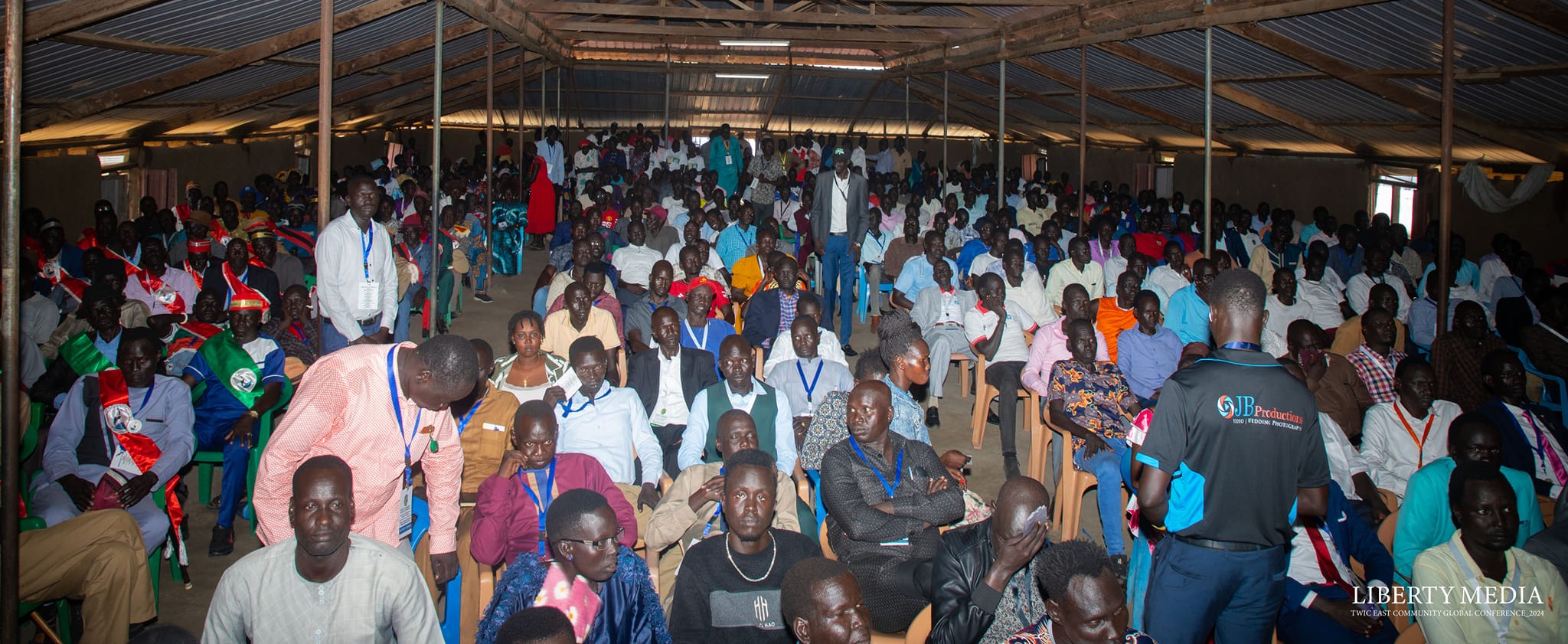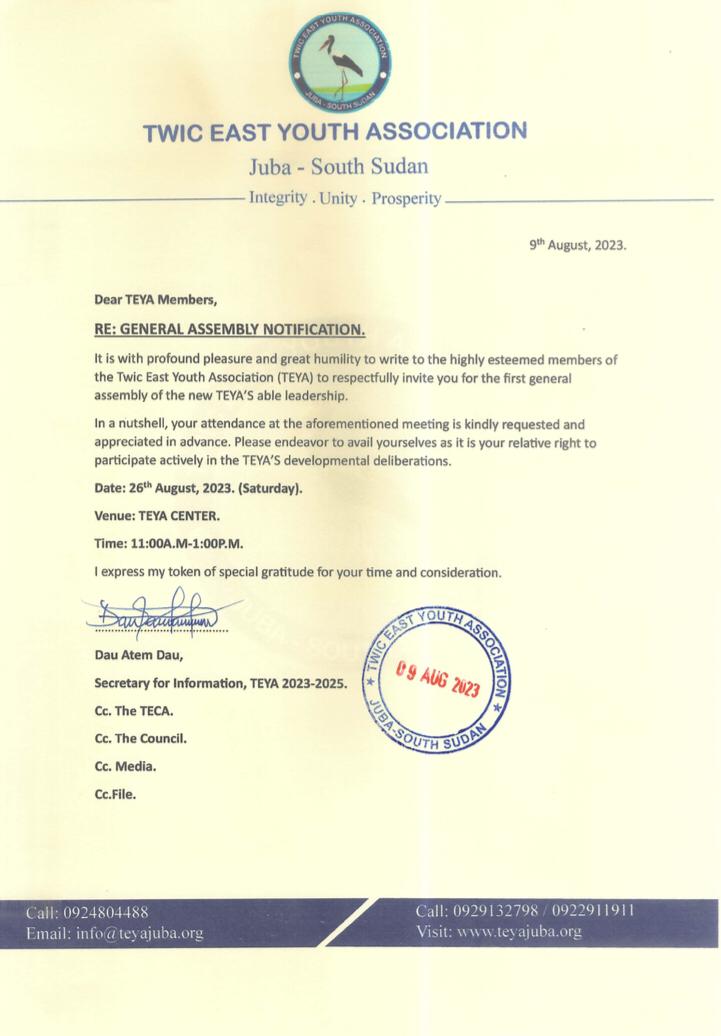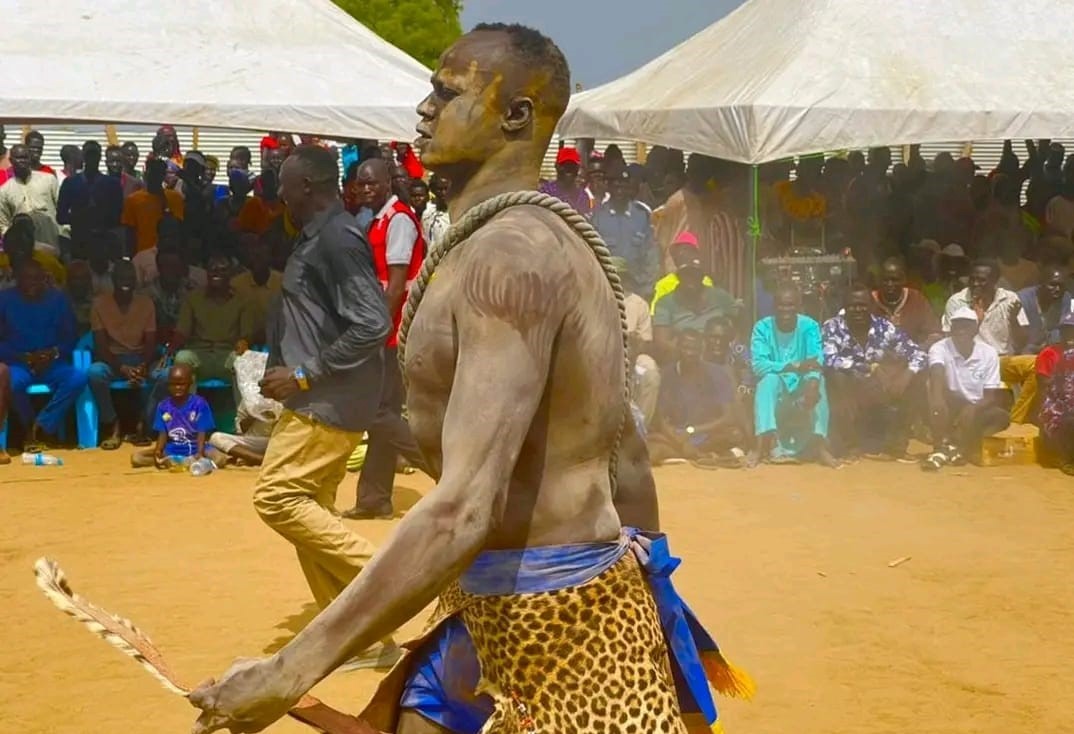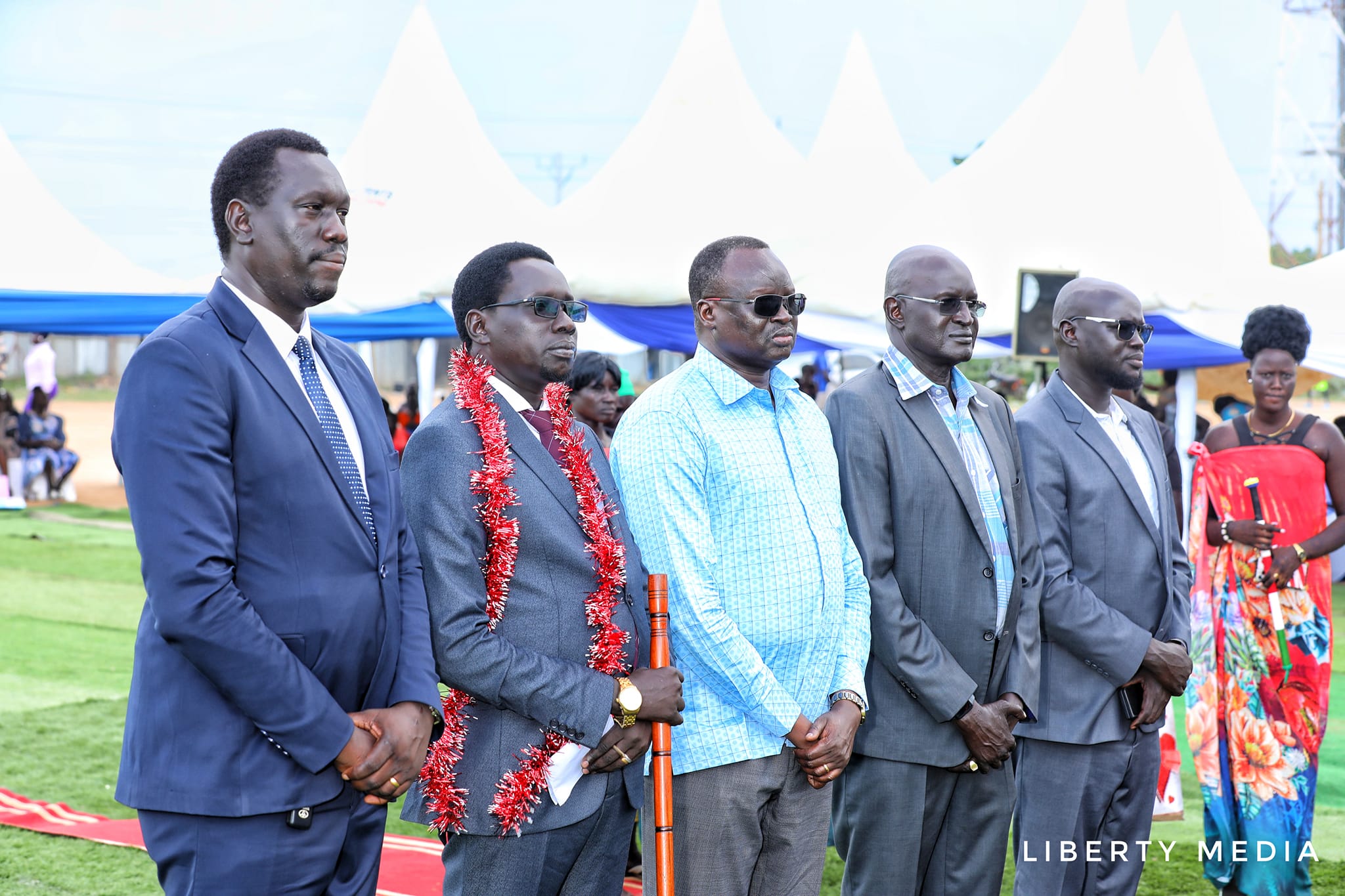
The Twic East Global Conference: Resilience and Development for a Brighter Future.
Twic East Global Conference concluded in Panyagoor at St. Peter's Cathedral after four days of productive discussions, with a focus on various important issues affecting the community. The conference focused on issues such as flood management, construction of dyke, Oil exploration and production information, resettlement, food security and agriculture, health challenges, Education, the well-being of local people, and cultural and heritage preservation.
The conference brought together 1475 delegates from different locations, with a total attendance of 3451 people, including representatives from the Twic East Community Association (TECA) in Juba led by Ambassador Bior Ajang, Twic East Youth Association in Juba (TEYA) led by Arok Dut Arok, Twic East Community Association in Australia (TECAA) led by Mamer Yaak Dut, Chol Kelei Chiengkou from Canada, Mama Athieng women chairperson, Adut Mamer Ayac of Nyiir Cit Arialbeek in Juba, Nyandeng Awaai Ajang of Nyiir Cit Arialbeek in Nairobi, representatives from Wau, Aweil, Malakal, Guolyar, Mangalla, Bor, Nimule, Kenya, Uganda, Renk, Nyumanzi, Ayilo, Kakuma, Maban, Twic East Intellectuals such as Dr. Majak'Agot Atem and Dr. Atem Kuir, engineers, economists, community youth led by Ajang-Thuch, members of Parliament from both national and state government, county commissioners, all Twic East chiefs led by Sultan Manyok Ajak Majok, all leadership of 5 Payams of Twic East County and other experts, Members of parliament from both the national and state governments, as well as county commissioner, were actively involved in the conference proceedings. The strong presence of the media, including Liberty Media, JB Production, Talkline Media, and Zoom Pakeer Media, helped to amplify the voices and resolutions of the conference to a wider audience.
One of the main concerns that was discussed at the conference was flood management. The Twic East region has been prone to flooding in recent years, causing significant damage to homes, crops, and infrastructure. Participants at the conference debated various strategies for mitigating the impact of floods, one of the major issues resolved at the conference was the construction of a dyke spanning 67 kilometers to help manage flooding in the region as the flood defenses tool, early warning systems, and improved drainage infrastructure. The delegates deliberated on the best approach to this project, considering both its environmental impact and its ability to protect the local communities from seasonal floods.
Food security and agriculture were also prominent themes at the conference. The Twic East region is heavily dependent on agriculture for its livelihood, yet many farmers face challenges such as limited access to markets, lack of irrigation infrastructure, and climate change impacts. Participants discussed ways to improve agricultural productivity, promote sustainable farming practices, and enhance food security for local communities.
The well-being of local people was another priority at the conference. Participants recognized the importance of addressing issues such as healthcare, education, and social services to improve the quality of life for residents in the Twic East region. Discussions focused on ways to strengthen health systems, expand educational opportunities, and promote community development initiatives.
The conference also discusses issue of Health services and during the conference a lot of challenges were recorded such as lack of health centers and units. The clear Health problems in Twi East County include malaria, malnutrition, waterborne diseases, respiratory infections, and lack of access to healthcare services. To address these health problems, community members can take proactive measures such as using insecticide-treated bed nets to prevent malaria, practicing proper hygiene and using clean water sources to prevent waterborne diseases, and seeking medical treatment for respiratory infections.
Additionally, the local government can invest in healthcare infrastructure, train healthcare workers, and provide access to essential medications to ensure that residents have access to quality healthcare services.
Community awareness campaigns can also be carried out to educate residents on the importance of preventive measures and seeking timely medical care to reduce the burden of health problems in Twi East County.
The conference listens to the report of the Director of Education in the county, that he is handling 40 primary schools and 1 secondary school in Twic East County and they are facing numerous challenges. Some of the key problems include lack of adequate infrastructure, resources, qualified teachers, and proper learning materials.
The conference gives way and solutions to address the reported challenges, it is crucial to implement the following solutions:
Improve infrastructure: Construct new school buildings and classrooms, repair existing ones, and provide essential facilities such as libraries, laboratories, and toilets.
Allocate more resources: Increase funding for schools to ensure they have the necessary resources for teaching and learning, including textbooks, stationery, and other educational materials.
Recruit qualified teachers: Hire more qualified and experienced teachers to enhance the quality of education and provide professional development opportunities to improve teaching standards.
Train existing teachers: Provide ongoing training and support for teachers to update their skills and knowledge, and empower them to deliver effective and engaging lessons to students.
Engage parents and the community: Encourage parental involvement in their children's education, establish partnerships with community organizations, and promote the importance of education within the local community.
By implementing these solutions, the schools in Twic East County can overcome their challenges and provide a quality education for all students.
Another significant resolution made at the conference was the amendment of cultural and heritage practices, including the lowering of marriage dowries to only 30 cows. The delegates recognized the need to modernize these traditions in order to promote gender equality and social harmony within the community. Additionally, the practice of paying money for marriage was condemned, with a call to halt this practice in favor of more equitable arrangements.
Another key topic of discussion was resettlement and repatriation process. Many people in the Twic East region have been displaced from their homes due to national political conflicts, natural disasters such as flood. The conference participants explored ways to support and integrate these displaced communities, ensuring that they have access to basic services, livelihood opportunities, and social support networks. The conference also expresses ideology of getting a better land for resettlement in the East and the participants adopted the idea of migrating or moving to Eastland immediately after surveying a land from any site of our (Twic) land in the East and it will be managed by the Twic East Community.
A conference discuss the oil exploration and production information in the land of South Sudan more especially in Twic East County. The participants confirmed that the authority of oil exploration, production, and refinery processes lies with the government of South Sudan.
During the conference, various proposals were discussed in the conference and amended to be discussed with the government before reaching a final agreement. It was noted that there have been instances of self-proclaimed individuals attempting to sign contracts with the government and oil production companies, which could potentially hinder the process.
In order to address this issue, it was decided to form the Body that comprise of Chiefs, Engineers, Youth and women representative, TECA representative and legal personnel to deal with government.
The Twic Eastland Resilience Initiative (TERI) was commissioned to facilitate the project of resettlement and support the community in adapting to environmental challenges. The delegates expressed their support for this new program and pledged their commitment to its success.
In-conclusion, Twic East Global Conference was a productive and enlightening event, bringing together a diverse group of stakeholders to tackle some of the most pressing challenges facing the community or a county. The discussions yielded several key resolutions, including the establishment of a task force on flood management, the development of a resettlement policy framework, the creation of a food security and agriculture strategy, the implementation of a well-being program for local communities, and the initiation of a cultural and heritage preservation project.
Moving forward, it will be important for all conference participants to work collaboratively to implement these resolutions and address the issues raised during the conference. By coming together and acting, the Twic East region can build a more resilient and sustainable future for its residents, ensuring that they have the resources and support they need to thrive in the face of challenges.
By Daniel Machar Dhieu
TEYA Writer & Content Creator
Leave A Comment









Quick Links
Popular Links
© TEYA-Juba. All Rights Reserved. Built by Belednai Technology






